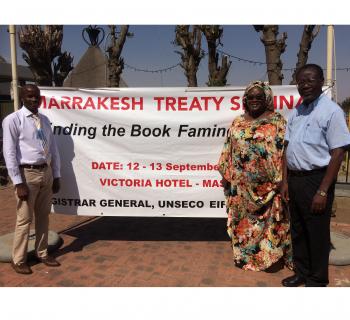
26 of the 28 countries with no provisions for libraries in their national legislation are developing countries (WIPO Study on Copyright Limitations and Exceptions for Libraries and Archives, 2017).

Digital technology has changed the world. It has also transformed the services that libraries can offer to their readers and communities, especially those living in remote or rural areas. But the laws that govern how digital information is used and shared have not kept pace.
Evidence shows that the copyright laws of developing and transition economy countries, where EIFL works, are often more restrictive than those of industrialized countries. For example, the right to make digital copies is uncertain, or may be expressly barred in some cases, and inter-library document supply services may be prohibited.
To respond to these pressing challenges, the Copyright and Libraries programme (EIFL-IP) advocates for national copyright law reform to support libraries in maximizing access to knowledge resources, while respecting the rights of creators.

• We promote the development of modern copyright laws that take into account the new technological environment in which libraries now operate.
• We assist librarians within our network during the process of national copyright law review so that libraries can remain effective in providing services to their users in support of access to knowledge, education and development.
• We encourage advocacy campaigns to improve national copyright laws for libraries.
• We support the implementation of the Marrakesh Treaty, an international treaty to facilitate access to published works for people with print disabilities in EIFL partner countries to increase the availability of reading materials in accessible formats.
While developing the pre-draft Law, it is good practice to consult with stakeholders who will be using the new legislation and living with it in the coming years. In Armenia, the stakeholder group that showed the most vivid interest was the library community. Having heard the voice of the Armenian library community, I changed several provisions in the pre-draft text to meet their concerns as far as possible, especially the chapter on exceptions and limitations, while safeguarding the framework of international and European legislation to which the Republic of Armenia is committed.
26 of the 28 countries with no provisions for libraries in their national legislation are developing countries (WIPO Study on Copyright Limitations and Exceptions for Libraries and Archives, 2017).
EIFL’s Draft Law on Copyright informed certain provisions on libraries and archives in Nigeria’s Copyright Act, 2022.